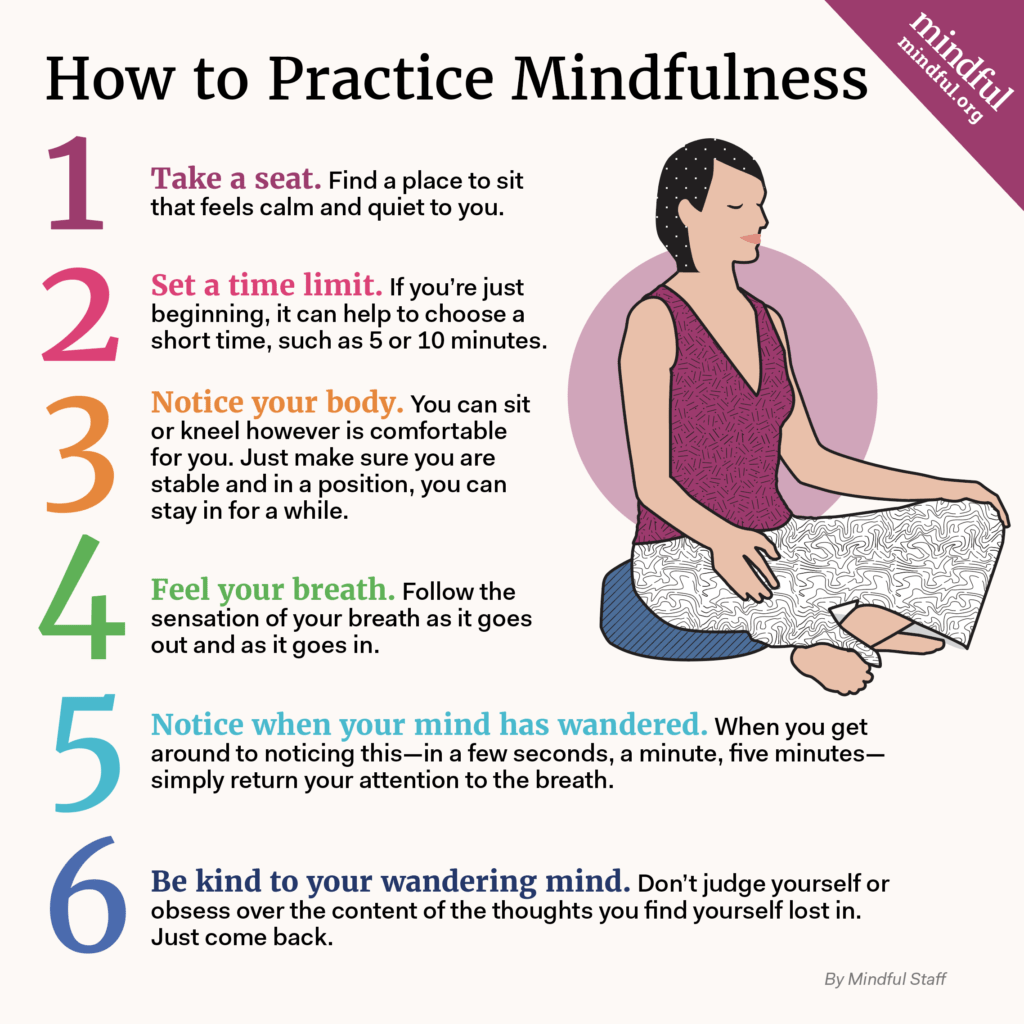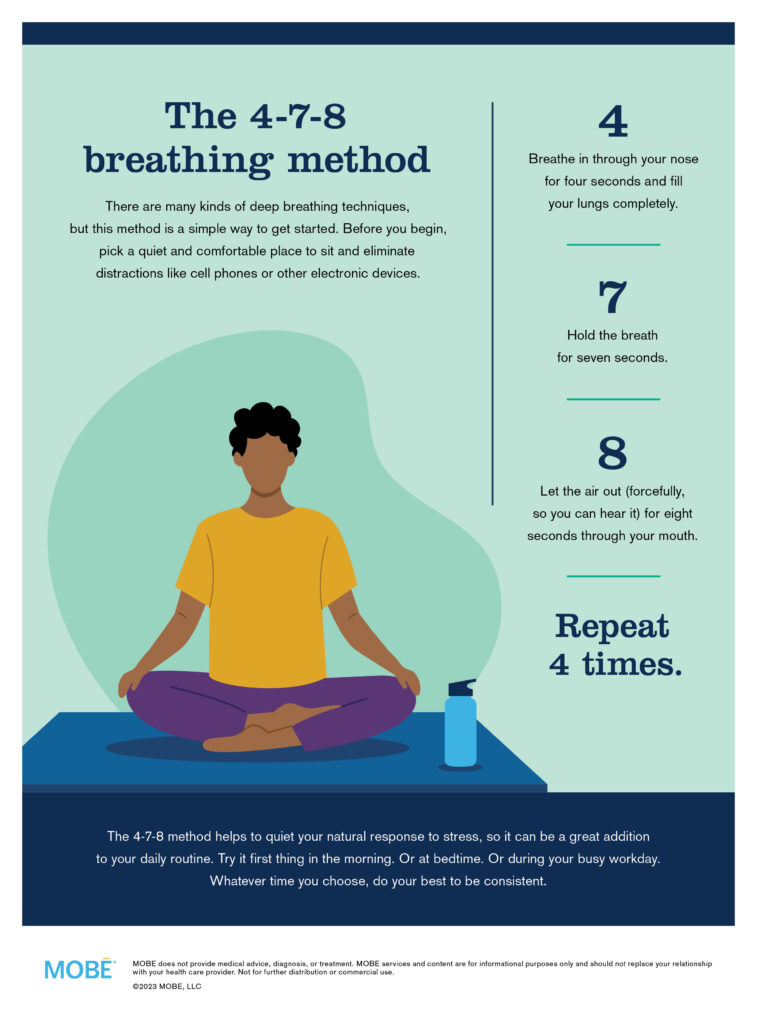Smart Isn’t Enough, You Need Mental Systems
In today’s high-pressure world, raw intelligence alone doesn’t guarantee success. Brilliant minds often burn out, stall in indecision, or drown in overwhelm. That’s because intellect, no matter how sharp, is ineffective without a framework to channel it. What the most productive, creative, and resilient people have in common isn’t necessarily a higher IQ, it’s a systemized mind.
Mindfulness forms the foundation of such a system. It turns intelligence into usable genius by helping the brain regulate focus, emotions, and energy. When you introduce structure, intentional habits that stabilize your mental state and you’re not relying on willpower alone. You’re engineering your mind to perform consistently.
Mental systems are about predictability in your mental performance. They ensure that even on low-motivation days, you can function effectively. They bring consistency, and in consistency lies power. Athletes have routines, artists have rituals, and successful professionals have mindful habits that guide their day.
Without systems, even the brightest minds are prone to chaos. But with the right scaffolding, intelligence is directed like a laser cutting through distraction, fear, and indecision. Genius, then, becomes less about the occasional spark and more about sustainable brilliance.
In short, talent might get you started, but systems keep you going. The most successful minds in any field aren’t necessarily the most gifted, they’re the ones who show up daily and use mindfulness to stay on track.

Daily Breathwork Builds Brain Stability
A single mindful breath can shift your mental state. But repeated breathwork, especially a short, intentional practice each morning can transform your baseline. One of the most effective techniques for mental stability is the 4–6 breath: inhale for four seconds, exhale for six. This simple pattern activates your parasympathetic nervous system, calming your brain and regulating emotions.
Starting the day with 3–5 minutes of 4–6 breathwork sends a signal to your body: “We are calm, clear, and in control.” That cue shapes your entire day. Over time, this builds neurological resilience, your brain becomes less reactive to stress, more focused under pressure, and more efficient during tasks.
Breathwork gives the brain space to reset before the day takes over. It establishes a zone of control from the moment you wake. This small act of focus serves as a mental anchor, grounding your thoughts and stabilizing your emotions for hours afterward.
Scientific studies now confirm that regular breathwork impacts the brain’s ability to regulate the amygdala (the stress center). This means that with consistent practice, you not only feel calmer, but you actually rewire your brain’s threat response.
Breathwork isn’t spiritual fluff; it’s neural training. It teaches your brain to choose balance over panic, focus over frenzy. This tiny habit, done daily, is the foundation for mental stability, turning chaotic minds into stable engines for genius.
One Word a Day Can Rewire Your Mind
Every day, our minds are bombarded with thousands of thoughts. Most pass by unnoticed, but over time, they shape our identity. What if you could take control of that shaping one word at a time?
The “focus word” technique is simple but powerful: choose a single word each morning like “Clarity,” “Precision,” “Calm,” or “Strength.” Throughout the day, revisit that word during pauses, challenges, or transitions. Let it guide your tone, posture, and mindset.
What you’re doing here is wiring a micro-identity. You’re no longer reacting randomly to your environment; you’re aligning your behavior with intention. That consistent repetition creates a feedback loop where your brain begins to associate your choices, actions, and emotions with that one word.
Over time, the brain begins to develop schemas around your focus word. That word influences your decision-making, how you interpret social cues, and even your motivation. It becomes a lens through which you see your challenges and opportunities.
This small habit creates large ripples. It builds mental discipline, sharpens self-concept, and fosters emotional stability. The more often you repeat the process, the stronger the neural connection becomes.
Mindful Check-Ins Shift the Brain’s Default Mode
Most of the time, our brains are running on autopilot. This “default mode network” is where daydreaming, worrying, and self-critical loops live. But the more often we interrupt it, the more we train our minds to stay present.
Mindful check-ins are short, 30-second pauses done three times a day. They are a subtle but profound tool. You pause. You observe your thoughts. You notice if you’re spiraling, distracted, or tense. No judgment, just awareness.
These mini-interruptions do two things. First, they give you agency: instead of being swept into doubt or stress, you can course-correct. Second, they gradually rewire your brain to favor presence over autopilot. Over time, the default mode itself starts shifting towards clarity, presence, and intention.
During these check-ins, you’re actively observing patterns. You become attuned to mental clutter and begin replacing habitual reactivity with conscious response. It’s like steering the ship of your mind back on course, again and again.
This habit may seem small, but it compounds fast. Your brain starts predicting these pauses and adjusting behavior even before the check-in. That’s when true neural rewiring begins, when the brain learns to interrupt itself.
These check-ins don’t require a quiet room or a meditation cushion. You can do them between meetings, before a meal, or while standing in line. In just three moments a day, you begin shifting your brain’s most habitual pathways.
Movement + Breath Clears Brain Fog
Mental fatigue doesn’t always come from thinking too much, it often comes from not moving enough. During long work or school days, the brain builds up stress metabolites. Attention dips, memory blurs, and decision fatigue sets in. That’s when mindful movement paired with breath becomes your reset button.
A short stretch break with slow breathing for just 2–3 minutes can flush the system. Neck rolls, shoulder releases, a forward fold, or walking with deep breaths are enough to stimulate circulation, oxygenate the brain, and reset neural rhythms.
Movement boosts brain-derived neurotrophic factor (BDNF), a protein that supports learning and memory. Combined with breath, it activates both body and brain, bringing you back to focus quickly and effectively.
You’re not just recharging energy, you’re cleaning the neural slate. That’s why even elite performers schedule regular movement rituals: not for fitness, but for cognitive renewal.
When integrated mindfully into your day, these resets improve not only productivity but emotional resilience. They remind you that energy is renewable, and focus is trainable.Especially during long academic or office hours, integrating this practice every 60–90 minutes is like hitting refresh on your mental browser. Clarity returns, energy lifts, and productivity becomes sustainable.
Journaling Builds Neural Clarity
Thoughts gain power when they’re seen. Writing them down doesn’t just clear your head, it strengthens your ability to think about your thinking, a skill called meta-cognition. And one of the fastest ways to build this skill is with a one-line daily journal.
Each evening write one insight, shift, or realization from your day. It doesn’t need to be profound. What matters is that you pause to reflect, distill, and express.This habit teaches your brain to scan for growth. Instead of letting days blur together, journaling creates closure and clarity. It also strengthens memory, as the act of writing consolidates neural pathways.
Journaling allows you to externalize internal clutter. When you see your thoughts on paper, you create psychological distance, this makes it easier to observe, question, and refine your thinking patterns.
It also helps build emotional intelligence. When you journal regularly, you begin to recognize your emotional triggers and victories, your patterns of self-talk, and your evolving beliefs.
Over time, your journal becomes more than a log, it becomes a map of your evolving mind. You can track patterns, self-correct, and witness your growth in real time. A few words a day can sharpen your thoughts for life.
Visualizing Success Builds Neural Confidence
Confidence is often misunderstood as something you’re born with, but in truth, it’s a skill you can build and one of the most effective tools for that is visualization. Spend just three minutes a day imagining yourself succeeding, calmly and clearly. Whether it’s acing an exam, giving a confident presentation, or handling stress with grace, the process of seeing yourself succeed begins to rewire the brain.
The key is to combine slow, deep breathing with vivid imagery. This pairing taps into both your autonomic nervous system and your subconscious mind, encoding your vision into neural circuits. Your brain treats that imagined success like a memory, building familiarity and emotional comfort around it.
Over time, visualization increases what’s called “self-efficacy”, your belief in your ability to perform specific tasks. It also reduces performance anxiety, because your brain is no longer entering cold situations, it has rehearsed success, again and again.
Visualization isn’t about fantasy. It’s about mental preparation. Olympic athletes and top performers use it for a reason: it builds neural muscle memory. The more you do it, the more natural confidence becomes.
When paired with action, visualization becomes a self-fulfilling prophecy. You begin to behave like the version of you that you’ve mentally rehearsed. That’s how genius grows through intention, repetition, and internal alignment.
Sleep Mindfulness Locks the Gains In
All your mental work during the day breathing, focus, journaling, visualization, needs one thing to consolidate: sleep. But not just any sleep. Quality, deep rest that is ushered in by mindfulness. In today’s overstimulated world, our brains are often too noisy at night to recover. Sleep mindfulness is the antidote.
Practicing breathwork or mindfulness before bed activates your parasympathetic nervous system, quieting mental chatter and preparing the brain for deep sleep. Patterns like the 4–7–8 breath (inhale 4, hold 7, exhale 8) are especially powerful. They lower cortisol levels and help transition the body into restorative rest.
Sleep is when the brain clears toxins, consolidates memories, and strengthens synaptic connections. If you’re training your mind during the day but skipping mindful sleep rituals, you’re leaving progress on the table.
Establishing a consistent sleep routine that includes mindfulness gives your body and mind the reset they need. Over time, your nervous system learns to let go, and your mind becomes more adaptive, rested, and creative.
Sleep becomes quiet but powerful closer to your day’s mental habits. It’s where the upgrades happen silently, locking in clarity, emotional balance, and learning from the day before.

The 4-7-8 breathing method is a powerful way to calm the nervous system before sleep, supporting memory consolidation and deep rest. As discussed in the article, pairing breath with mindfulness helps lock in daily mental gains and prepares the brain for overnight rewiring.
Reflection Is the Hidden Genius Move
Most people move from day to day without ever pausing to ask: what did I learn? But reflection is what separates motion from progress. When you take a few minutes to review your day, you begin turning random experiences into valuable insights.
The key to reflection is simplicity. One question”What did I learn today?”, can open up new awareness. Was there a moment you handled stress better? A conversation that taught you something? A mistake you won’t repeat?
This small habit builds a powerful feedback loop. Your brain begins to notice lessons as they’re happening, knowing that review is coming later. That anticipation trains the mind to be more present, more thoughtful, more adaptive.Reflection also reinforces a growth mindset. Rather than seeing your day as good or bad, you see it as input data for improvement. You stop judging and start adjusting.
In a world obsessed with optimization, reflection is the calibration tool. It’s where small shifts become visible, and where genius begins to take root not in brilliance, but in awareness and learning.
Stack the Right Habits and Genius Becomes Natural
Many people wait for genius to strike. But genius is rarely an accident; it’s a system, built one habit at a time. When you stack simple, intentional habits breathwork, movement, journaling, reflection they begin to work together. Their effects compound.
One habit grounds you. Two habits align your energy. Three or more begin creating momentum. The Genius Mind Code isn’t about complexity; it’s about consistency.When you breathe with intention, think with clarity, move with awareness, and rest with purpose, you’re training your nervous system to operate at its peak. You’re shifting from reactive to responsive, from overwhelmed to centered.
Within 30 days, real changes start showing. You notice fewer mental spirals, more emotional control, sharper focus, and greater confidence. Your brain adapts to the system you’ve created. Genius becomes less a spark and more a state.This is how high performers think and live not with grand gestures, but with daily discipline. Stack the right habits and, before long, you’re not just thinking smarter. You’re living smarter.
Frequently Asked Questions on :The Genius Mind Code Rewiring Success Through Daily Mindfulness Habits
What is the Genius Mind Code?
It’s a daily system of mindfulness habits designed to rewire your brain for consistent focus, clarity, and mental performance.
Can mindfulness really boost intelligence?
Mindfulness doesn’t increase IQ, but it optimizes how you use your intelligence by improving focus, regulation, and self-awareness.
Why aren’t talent and intelligence enough?
Without mental systems, even highly intelligent people struggle with consistency, emotional balance, and decision-making.
How does breathwork help the brain?
Breathwork activates the parasympathetic nervous system, reducing stress and increasing emotional control and focus.
What is the 4–6 breath pattern?
Inhale for 4 seconds, exhale for 6. This pattern calms the nervous system and sets a grounded tone for the day.
How does choosing one word a day affect mindset?
It creates a focused mental identity loop, helping you align your thoughts and actions with a single, powerful intention.
What are mindful check-ins?
Brief pauses, three times a day to observe your thoughts and reset focus, shifting your brain out of autopilot mode.
How do these check-ins rewire the brain?
They interrupt habitual mental loops and reinforce presence, eventually altering the brain’s default neural pathways.
Why is movement important for mental clarity?
Physical movement boosts circulation and clears stress chemicals, refreshing your cognitive state and attention span.
How does combining breath and movement help?
It creates a mini-reset that restores energy and sharpens focus, especially effective during long work or study sessions.
What’s the benefit of daily journaling?
Journaling builds meta-cognition, your ability to reflect on your thoughts and strengthens memory and clarity.
How much journaling is needed?
Just one line a day focused on insight or learning is enough to build neural clarity and emotional awareness.
What is visualization and how does it work?
Visualization is mentally rehearsing success. It builds self-confidence by strengthening belief and neural familiarity.
Why combine visualization with breath?
This pairing relaxes the body while reinforcing mental imagery, making success feel more emotionally and physically real.
How does sleep mindfulness improve learning?
Mindful breathing before sleep helps consolidate memory, reduce stress, and lock in the mental growth from your day.
What is the 4–7–8 breath pattern for sleep?
Inhale for 4 seconds, hold for 7, exhale for 8. This slows the heart rate and signals the body to enter rest mode.
Why is reflection described as the “hidden genius move”?
Reflection turns daily experience into wisdom, encouraging continuous improvement and emotional intelligence.
How long before I see results from these habits?
With daily practice, many people notice shifts within 2–4 weeks greater calm, clarity, focus, and mental stamina.
Do I have to practice all 10 habits every day?
No. Start small. Even 2–3 habits can make a noticeable difference. Consistency is more important than volume.
How do these habits “stack” to build genius?
Each habit targets a different brain function together, they form a system that upgrades how you think, feel, and perform.
– Authored by Sohila Gill





